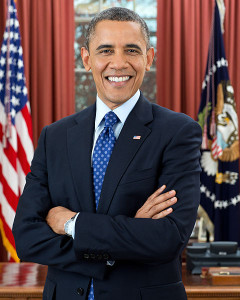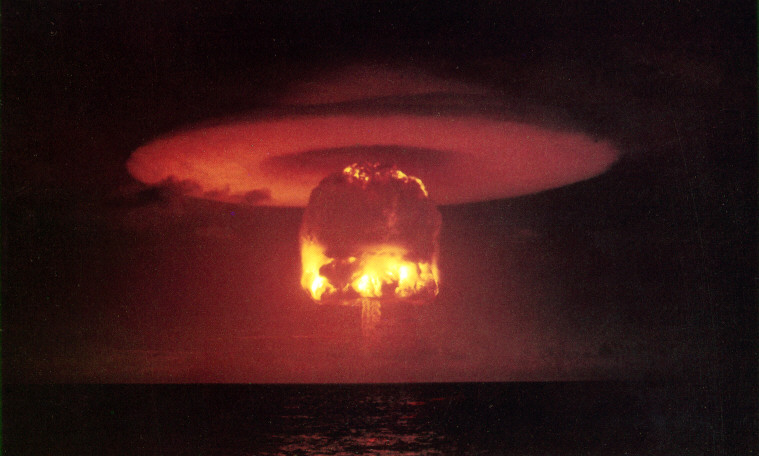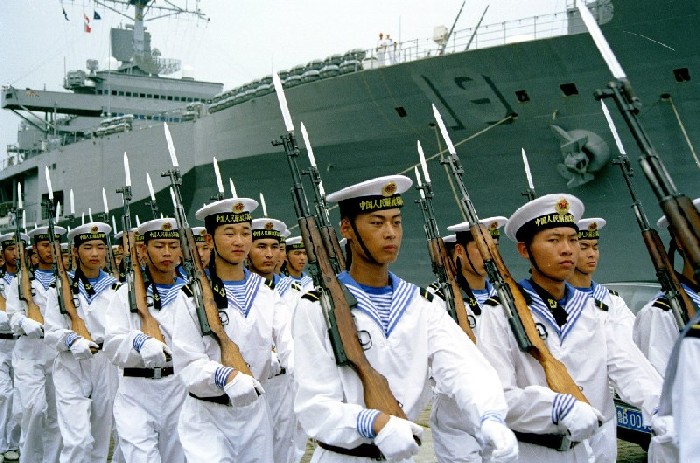(Reuters) – Saturday night had turned into Sunday morning and four days of talks over Iran’s nuclear program had already gone so far over schedule that the Geneva Intercontinental Hotel had been given over to another event.
A black tie charity ball was finishing up and singers with an after party band at a bar above the lobby were crooning out the words to a Johnny Cash song – “I fell into a burning ring of fire” – while weary diplomats in nearby conference rooms were trying to polish off the last touches of an accord. Negotiators emerged complaining that the hotel lobby smelled like beer.
At around 2:00 a.m., U.S. Secretary of State John Kerry and counterparts from Britain,China, France, Germany and Russia were brought to a conference room to approve a final text of the agreement which would provide limited relief of sanctions on Iran in return for curbs to its nuclear program.
At the last minute, with the ministers already gathered in the room, an Iranian official called seeking changes. Negotiators for the global powers refused. Finally the ministers were given the all clear. The deal, a decade in the making, would be done at last.
Now that the interim deal is signed, talks are far from over as the parties work towards a final accord that would lay to rest all doubts about Iran’s nuclear program.
“Now the really hard part begins,” Kerry told reporters. “We know this.”
THAW
The deal, which represents the most important thaw between the United States and Iran in more than three decades since Iranian revolutionaries held 52 American hostages in the U.S. embassy in Tehran, very nearly did not happen.
There was still ample ground to cover on the final day, when U.S. Secretary of State John Kerry arrived, joining foreign ministers from Britain, China, France, Germany andRussia.
Officials from several of the countries were doubtful that a deal would be reached. Resentful-sounding European diplomats said their foreign minister bosses had not wanted to come unless a final text was on the table, but had felt obliged to come anyway when Russia’s Sergei Lavrov showed up on Friday.
When the foreign ministers arrived, some junior diplomats and journalists were evicted from their hotel rooms to clear space for the VIPs.
After his trans-Atlantic flight on Saturday morning, Kerry met his Iranian opposite number Mohammad Zarif, with European Union foreign policy chief Catherine Ashton, who has led negotiations on behalf of the powers.
 According to a senior U.S. State Department official, Kerry told Zarif there could be no more delay. President Barack Obama’s administration would call for even tighter sanctions on Iran unless a deal was reached now. Congress members were demanding new sanctions and the White House would join them.
According to a senior U.S. State Department official, Kerry told Zarif there could be no more delay. President Barack Obama’s administration would call for even tighter sanctions on Iran unless a deal was reached now. Congress members were demanding new sanctions and the White House would join them.
Kerry made the case that “there would be no way to hold back new sanctions to give room for (a) new round and we would lead the charge for more sanctions if we did not come to agreement,” the State Department official said.
 By Saturday evening, the final language was personally approved by Obama in Washington. In a sign of how big a risk the Obama administration was taking, the main U.S. ally in the Middle East, Israel, decried what it called an “historic mistake”, easing sanctions without dismantling Iran’s nuclear program.
By Saturday evening, the final language was personally approved by Obama in Washington. In a sign of how big a risk the Obama administration was taking, the main U.S. ally in the Middle East, Israel, decried what it called an “historic mistake”, easing sanctions without dismantling Iran’s nuclear program.
But Obama said the deal put limits down on Iran’s nuclear program that would make it harder for Tehran to build a weapon and easier for the world to find out if it tried.
“Simply put, they cut off Iran’s most likely paths to a bomb,” Obama said in a late-night appearance at the White House after the deal was reached.
Obama was not the only one taking a risk. Iran’s new president, the relative moderate Hassan Rouhani, was elected in June and inaugurated in August promising to ease the crippling sanctions. But Iran has invested billions of dollars in a nuclear program, which its clerical and military establishment believes is a cornerstone of national pride.
Before Zarif was sent to Geneva, he and Rouhani had a meeting with Iran’s supreme leader, Ayatollah Ali Khamenei, whose approval was absolutely required for any deal.
“The leader’s main concern is his core supporters, who truly believe that there should be no deal with America, and are closely watching the developments to find a weak point or a failure to blame on the negotiators for betraying the leadership,” said a former Iranian official, a relative of Khamenei.
Reuters has the full article











